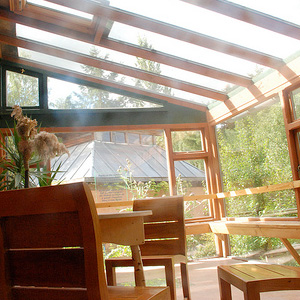CAT investigates home energy efficiency

CAT’s information department is embarking on a new project to understand the barriers people face to adopting sustainable behaviours. Concentrating on home energy efficiency, the project will see CAT staff and volunteers hold discussions with local people about their domestic energy use.
Making a difference to the amount of energy used in the home makes a significant impact on our emissions. Domestic energy consumption accounts for 27% of all UK emissions, 56% of which is used in heating.
In Zero Carbon Britain, CAT’s scenario for the UK’s zero carbon future, researchers estimated that the average home’s heating and lighting could be reduced by 80% through energy efficiency measures. Such reductions would make a notable difference to home energy costs, as well as lessening our environmental impact.
Even small changes can make a noticeable difference. Turning the thermostat down by 1C could reduce emissions by over 5%; hanging out washing to dry instead of tumble-drying can save 1.7kg of carbon dioxide.
However, making bigger changes such as installing insulation is harder, as Welsh homes present unique challenges. A recent report by the Welsh Assembly deemed a significant number of houses to be ‘hard to treat’, due to their solid walls and lack of access to gas. Schemes aimed at making homes more energy efficient may not provide adequate support for the needs of Welsh homeowners and tenants, as take up rates of such schemes have been low locally.
Drawing on CAT’s considerable expertise in home heating, the project aims to combat this by targeting specific local problems, such as heating with oil and insulating solid walls. Talks with community groups aim to understand the practical barriers people face when contemplating making changes to their homes and lifestyles to become more sustainable.
Visit http://info.cat.org.uk/communitygroups to read more about the project.